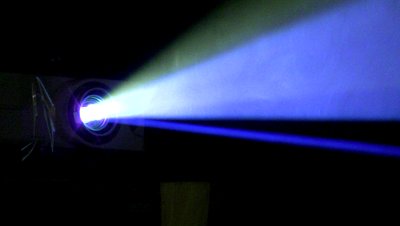Five minutes into the CEO’s presentation, one of the projectors on a two-screen widescreen blend went out. Half of a 60-foot wide and 20-foot high screen went black, and somehow this event was still a success.
The elapsed time from the moment the projector failed to the point that the entire back-up scenario was in place was 15 seconds. Let me say that again—a partial black screen turned into a fully blended, perfectly functioning, back-up image. In 15 seconds.
Back-Up Plan to the Rescue
The point of this post is not to point out how great we are, but rather to draw attention to the need for backup plans. It is helpful to have backups for key pieces of equipment and procedures that are assigned and understood by the crew. We take ten minutes before every show to meet with the show leads and discuss each back-up option and the roles and responsibilities that each crewmember has in successfully implementing the plan.
For the last 10 years, through the countless shows we have put on, we have not needed to use a back-up plan. But when that screen went black, our team was able to successfully implement our backup plan, getting the screen working again in just 15 seconds. This moment of panic ended up being a victory for us. And it is all thanks to that pre-show crew meeting.
Add it to the Job Description
While having and reviewing back-up scenarios are clearly not in the job description of an event planner (the hundreds of things that planners juggle on a typical show is more than enough), a good tip is to ask your production team “What will we do if a projector fails?” or “Not that it will, but what is your procedure if the wireless mic on stage fails?”
There is no way to guarantee that a piece of equipment will work flawlessly. What we can guarantee is that we have a backup plan in place that quickly and seamlessly gets the show back on track, and a fantastic team that knows what they are doing.

